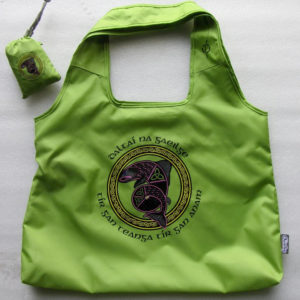The four least useful things;
a headache, a bitter mouth,
a worried mind, and an empty pocket.
Note: What good is a headache? It doesn’t get you the riches of muscles aching from work.
When you’re lying awake with a dismal headache,
and repose is taboo’d by anxiety,
I conceive you may use, any language you choose
to indulge in, without impropriety.
Gilbert & Sullivan, Iolanthe [1882], Act II.
What good is a bitter mouth? People will only dismiss what you say as sour grapes.
The Land of Faery,
…,
Where nobody gets old and bitter of tongue.
W.B. Yeats, The Land of Heart’s Desire [1894].
What good is a worried mind? It won’t change things.
You’re only here for a short visit. Don’t hurry. Don’t worry. And be sure to smell the roses along the way.
W.C. Hagen, The Walter Hagen Story [1956].
What good is an empty pocket? Yours isn’t the only one.
Mise Raifteirí an file
Lán dóchais agus grá
Le súile gan solas,
Le ciúnas gan chrá.Ag dul siar ar m’aistear
Le solas mo chroí
Fann agus tuirseach
Go deireadh mo shlí.Féach anois mé
Agus m’aghaidh ar bhalla
Ag seinm ceoil
Do phócaí folamh’.
Antaine Raifeirí, [1784-1835] Raifeirí an File.
Note also: In the expression “na ceithre rud” the article, “na”, is plural while the noun, “rud”, is singular. When counting things, the rule is that the noun is usually in the singular, e.g., rud amháin, dhá rud, trí rud, ceithre rud, … However, the plural article is used to modify things counted from three to nineteen, e.g., na trí rud, na ceithre rud, … na naoi rud déag. Every other counted thing uses the singular particle, e.g., an rud amháin, an dhá rud, … an fiche rud, an ceithre chéad rud.
